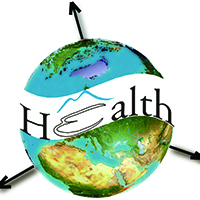COVID-19 vaccine prioritization based on district classification in Yogyakarta Province, Indonesia

All claims expressed in this article are solely those of the authors and do not necessarily represent those of their affiliated organizations, or those of the publisher, the editors and the reviewers. Any product that may be evaluated in this article or claim that may be made by its manufacturer is not guaranteed or endorsed by the publisher.
Authors
Due to limited availability, Indonesia's coronavirus disease 2019 (COVID-19) vaccination will be done in 4 stages until herd immunity has been reached. Yogyakarta, an education and tourist destination, needs to get a specific, spatial estimation of the exact need for COVID-19 vaccination without delay. This study sheds light on identifying which districts should be prioritized at each vaccination phase. Secondary data collected from provincial, and county-level statistical agencies were quantitatively calculated by the Z-Score method. The results indicate that the first phase of vaccination should prioritize Pengasih and Sentolo districts in Kulon Progo Regency, which have a large number of health workers; the districts of Depok, Banguntapan, Piyungan, Sewon, Wonosari, Gamping, Mlati and Ngaglik should be done in the second phase based on the fact that these districts have many public service officials as well as elderly people; Umbulharjo and Depok districts will be approached in the third phase since they have more vulnerable groups and facilities that may promote COVID- 19 transmission during their daily activities; while the fourth phase should focus on the districts of Banguntapan, Sewon, Kasihan, Gamping, Mlati, Depok, and Ngaglik due to the intensity of COVID-19 clusters discovered there. Overall, vaccination would be given the priority in the districts with the largest number of people in need, i.e., public service officers, elderly people and those likely to be exposed to the coronavirus causing COVID-19.
How to Cite

This work is licensed under a Creative Commons Attribution-NonCommercial 4.0 International License.








